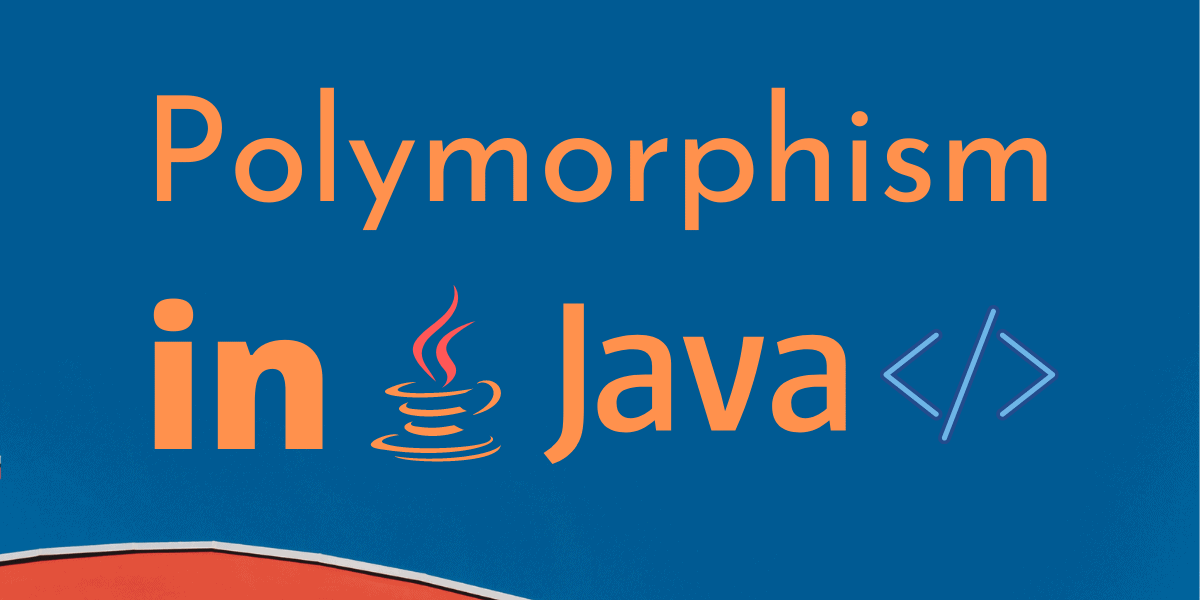In Java, polymorphism refers to an object’s capacity to take on several identities. To put it another way, polymorphism in Java allows us to do the same action many times. Any Java object that passes more than one IS-A test is termed polymorphic, and all Java objects are polymorphic since they have passed the IS-A test for both their own type and the class Object. Compile-time polymorphism and runtime polymorphism are the two forms of polymorphism in Java.
What Is Polymorphism?
Polymorphism is derived from two Greek words: poly and morphs. “Poly” means “many,” and “morphs” means “forms.” As a result, polymorphism denotes the existence of several variants. Polymorphism is a key aspect of Object-Oriented Programming.
What is polymorphism in Java?
In Java, polymorphism is described as a job that may perform a single operation in several ways. Object-Oriented Languages can’t be called that if they don’t allow polymorphism. Object Base Languages, on the other hand, are what they’re called. One example of such a language is Ada. Java is an Object-Oriented Language because it allows polymorphism.
When there is inheritance, or when several classes are linked to one another, polymorphism arises. In Java, inheritance is a very useful concept. Inheritance is the ability of one class to inherit the characteristics and attributes of another. In Java, polymorphism allows us to use inherited attributes for a variety of purposes. As a result, we may perform the same task in a variety of ways.
Polymorphism Characteristics:
Polymorphism has several characteristics. Some of them are as follows:
- Coercion
- Internal Overloading of Operator
- Parameters or Polymorphic Variables
Coercion:
Coercion is the process of changing one kind of item into another type of object without explicitly doing so. To prevent type mistakes in the code, this is done automatically.
Internal overloading of Operator:
Depending on the input context or the kind of operands, an operator or symbol can act in several ways. Static polymorphism is known for this feature. Although Java does not enable user-defined operator overloading in the same way that C++ does, there are a few cases where Java overloads operators internally.
Parameters of Polymorphic Variables:
Polymorphic variables are represented by an object and instance variables in Java. This is the case because any class’s object variables can have an IS-A connection with their own classes and subclasses.
Types of Polymorphism
There are two ways to implement polymorphism in Java:
- Overloading Method
- Overriding Method
Overloading Method:
Method overloading is a procedure that allows you to construct many methods with the same name in the same class, all of which operate differently. When a class has many methods with the same name, method overloading happens.
Overriding Method:
When a subclass or a child class has the same method as the parent class, this is known as method overriding.
Polymorphism’s Benefits in Java
- It allows the code to be reused. The written, tested, and implemented classes can be reused numerous times. As a result, the developer saves a significant amount of time. Furthermore, the code may be modified without impacting the original.
- Multiple data values can be stored in a single variable. A variable inherited from the superclass into the subclass can have its value modified without affecting its value in the superclass or any other subclasses.
- It is easier for the programmer to debug code with fewer lines of code.
Also Read: Fibonacci Series in Java
Conclusion:
The article on Polymorphism in Java has come to a close. We hope this information aids you in improving your Java knowledge. The concept of polymorphism in Java was introduced in this article. This article also discusses the two forms of polymorphism in Java: compile-time polymorphism and runtime polymorphism, as well as java polymorphism examples, method overloading, method overriding, and why polymorphism is useful in Java.
FAQs:
What is the purpose of polymorphism in Java?
In Java, polymorphism allows you to design a method that can handle a variety of various sorts of functionality with the same name. Polymorphism can also help us achieve consistency in our programming.
What is the meaning of polymorphism variables?
During the execution of a program, a polymorphic variable is defined as a variable that may hold values of several kinds.
What is Java Runtime Polymorphism?
Dynamic Binding or Dynamic Method Dispatch is two terms for runtime polymorphism in Java. The call to an overridden method is dynamically resolved at runtime rather than compile-time in this approach. Method Overriding allows for runtime polymorphism to be established.

